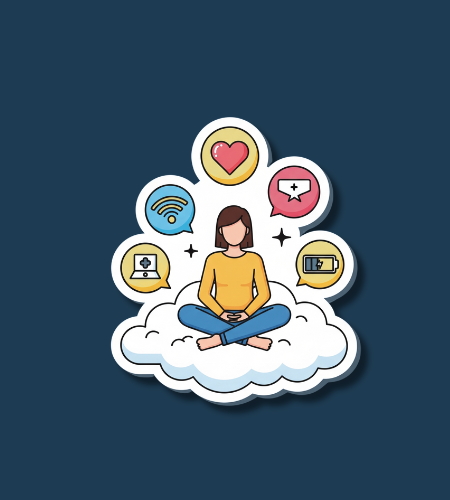Internet Self-Care Day is observed on August 21 each year, inviting us to pause, tidy up our digital habits, and use the web in ways that actually support our well-being rather than drain it.
History of Internet Self-Care Day
Public sources consistently point to August 21 as the date, with the observance gaining traction through online communities and wellness advocates who framed it as a gentle reset for how we use the internet day to day. Articles encouraging intentional habits and small “digital tune-ups” helped the idea spread beyond niche circles.
Some calendars trace the origins to 2017 and credit the wellness app Aloe Bud with championing the concept, which fits the spirit of simple, supportive nudges toward healthier online routines. While the web’s exact starting point for the day is hazy—as internet lore often is—the message has stuck: be mindful, set boundaries, and make your feeds work for you.
Why is Internet Self-Care Day important?
Because most of us spend big chunks of life online, the quality of that time matters. Endless scrolling, doom-laden feeds, and compare-and-despair spirals quietly tax our mood and attention. Marking one day to step back makes it easier to notice what helps, what hurts, and what to change next—not with guilt, but with curiosity.
It also reminds us the internet can be a tool for feeling better, not just a firehose. Swapping a few follows, muting noisy alerts, joining kinder communities, or saving a handful of truly useful resources can shift your day in small, steady ways. The goal isn’t to log off forever; it’s to log on with intention.
- It gives permission to set kinder boundaries online.
- It turns vague “digital detox” ideas into small, doable steps.
- It highlights communities that leave you calmer, not wired.
- It encourages curating feeds the way you’d curate a room.
- It helps replace autopilot scrolling with purposeful breaks.
How to Observe Internet Self-Care Day
Start with a ten-minute audit: unfollow accounts that make you tense, mute push alerts you never asked for, and pin a couple of sites or channels that genuinely help you learn, breathe, or laugh. If a platform leaves you feeling worse, set a simple time limit and see how the day changes when you stick to it.
Then add one supportive habit you’ll keep—a short guided breathing video in your bookmarks, a community that feels welcoming, or a nightly phone-on-the-dresser rule. Write down what you changed and how it felt; small wins are easier to repeat when you name them.
- Unfollow three accounts that spike stress and follow one that lifts you.
- Turn off non-essential notifications for 24 hours and notice the difference.
- Save two trustworthy mental-health resources for quick access.
- Move your phone out of the bedroom tonight.
- Schedule a weekly “quiet web” block for reading or learning.
Internet Self-Care Day: 7 Small Tweaks for a Calmer, Kinder Online Life
- Do a 10-minute feed clean-up – unfollow three accounts that spike stress and follow one that lifts you.
- Set gentle app limits – cap social apps at 30–45 minutes and move them off your home screen.
- Silence noise – turn off non-essential push alerts for 24 hours and add one daily Focus/Do Not Disturb block.
- Tidy your info diet – unsubscribe from five junky emails and bookmark two high-quality sources you actually read.
- Swap scrolling for nourishment – have one phone-free meal and schedule a 15-minute “quiet web” session for reading or learning.
- Protect your space – review privacy settings, revoke unused app permissions, and enable two-factor authentication.
- Make rest visible – charge your phone outside the bedroom and set a “no-scroll” window before bed.
Internet Self-Care Day Dates Table
| Year | Date | Day |
|---|---|---|
| 2025 | August 21 | Thursday |
| 2026 | August 21 | Friday |
| 2027 | August 21 | Saturday |
| 2028 | August 21 | Monday |
| 2029 | August 21 | Tuesday |
Subscribe to our newsletter and never miss a holiday again!

